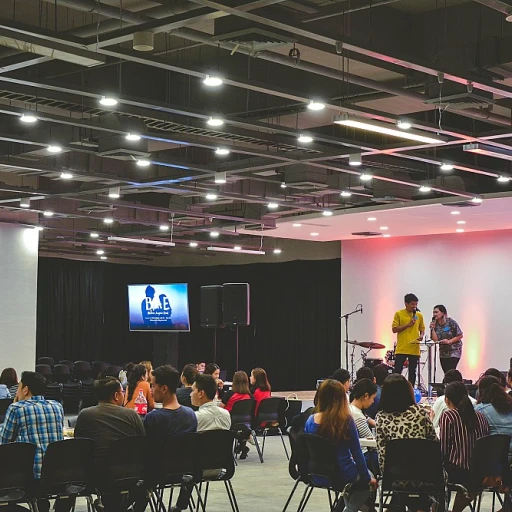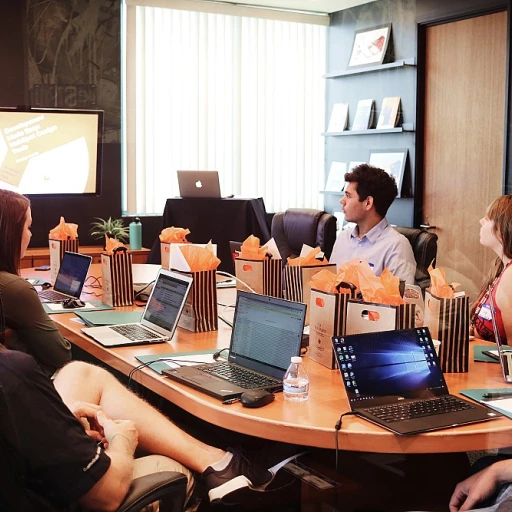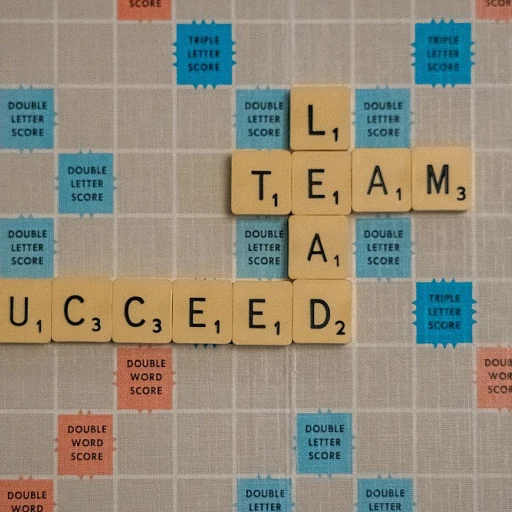
Understanding the Global Management Challenge Model
Exploring the Dynamics of the Global Management Challenge Model
The Global Management Challenge (GMC) Model serves as an essential framework for understanding how businesses navigate the complexities of international management. It is known for being the largest strategy and management competition in the world, attracting participants from various sectors and regions, including Poland, Portugal, and the Ivory Coast. The competition simulates a realistic business environment where teams must make management decisions in areas such as product development and market expansion. Participants in the GMC must navigate several rounds, including national and international finals, where they compete to win the global title. As these teams progress, they tackle the challenge of globalization by adjusting their strategies and management decisions to reflect diverse business environments and market demands. In practice, the Global Management Challenge encourages teams to focus on key areas such as share price optimization and strategy management. By simulating different business scenarios, the competition helps participants refine their decision-making skills, particularly when dealing with international competition and market changes. As businesses engage with the GMC, they encounter the need for updating product strategies that align with global dynamics. This requires the ability to interpret and respond to manual reports and sets reports generated during the competition. These reports are critical for evaluating business performance and making informed management decisions. By actively participating in the international final rounds, teams gain valuable insights into effective business management and the importance of cultural diversity. The challenge fosters a greater understanding of global management strategies, enabling companies to gain an exquisite advantage in the competitive business landscape. As the competition evolves, it provides a unique opportunity for businesses to save time and resources while enhancing their strategic capabilities.Adapting Communication Strategies to Global Management
Strategies for Efficient Global HR Communication
In the context of the Global Management Challenge (GMC), adapting communication strategies to align with international management frameworks is crucial. Organizations participating in these global competitions, such as the final round in places like the Czech Republic or national finals in countries like Portugal and Poland, must refine their communication approaches to effectively convey management decisions and strategy management. To address the unique demands of a global setting, HR teams should consider the following strategies:- Cultural Alignment: Tailoring communication styles to suit different cultural norms aids in overcoming communication barriers. This involves understanding the nuances of cross-cultural interactions, such as varying attitudes towards hierarchy and decision-making processes within the company.
- Centralized and Decentralized Models: Depending on the organization's business management structure, deciding whether a centralized communication model is suitable or if decentralized communication better suits local teams can significantly impact overall effectiveness. This decision must be informed by an in-depth understanding of how different regions operate and their specific needs from HR communication.
- Use of Technology: Embracing digital platforms that offer real-time collaboration can save time and enhance the global reach of communication initiatives. Leveraging tools that integrate management reports and can update stakeholders instantaneously is essential in a fast-paced competition environment such as the GMC.
- Feedback Mechanisms: Establishing channels for feedback collection not only from management but also from international team members ensures that the communication strategies are not only top-down but are inclusive and dynamic. This allows organizations to make well-informed management decisions that are responsive to the needs of all stakeholders involved.
Cultural Sensitivity in HR Communication
Cultivating Cross-Cultural Competence in HR Communication
Effectively managing teams involved in global competitions like the Global Management Challenge (GMC) necessitates acute cultural sensitivity. In business, comprehending diverse cultural nuances is paramount, especially when dealing with international teams across various rounds, whether it's in Portugal, Poland, or Ivory Coast. In the highly competitive landscape where strategy management is key, cultural sensitivity goes beyond merely recognizing differences. It involves:- Understanding local practices and business etiquettes that can influence management decisions. For instance, in the Czech Republic's national final, adhering to local business norms might offer the exquisite advantage needed to emerge as a leader.
- Adapting communication styles to suit the cultural context of each team. This not only helps in avoiding potential conflicts but also in building stronger team cohesion.
- Ensuring that updates and reports are tailored to meet the expectations of diverse cultural audiences. For instance, manual reports shared among global teams should consider preferred formats and communication channels.
Leveraging Technology for Effective Global Communication
Enhancing Global Communication through Technology
The role of technology in the realm of global management communication is not just pivotal but transformative. In our current era, where businesses participate in international competitions like the Global Management Challenge (GMC), leveraging advanced technology is vital to stay ahead in the management competition. Utilizing digital platforms can give companies an exquisite advantage by speeding up processes and ensuring efficient management decisions. The task is not simply about being updated on technological trends; it's about integrating these into the existing systems to enhance overall effectiveness.
Global HR teams, which are often comprised of members from diverse corners of the world like the Czech Republic and Ivory Coast, need tools that facilitate seamless communication. This includes being able to set reports that are accessible, clear, and actionable for every member, irrespective of their location. With the advent of cloud solutions and collaborative software, manual reports become outdated, paving the way for more dynamic updates and updating processes that save time and resources.
Moreover, global companies are moving towards embracing technologies that help in managing data more efficiently. This becomes particularly crucial during pivotal stages in competitions such as the international final or the final round of a business management challenge. Using advanced data analytics tools, HR departments can generate insights from the vast data sets they possess, helping teams to make informed decisions that boost the share price and overall business strategy.
On the flip side, as technology becomes more embedded in HR communication, businesses must remain wary of its limits. They must ensure the digital solutions they implement are adaptable and cater to the specific needs of their international workforce. Technology should be a facilitator of growth, not a hurdle to be overcome.
Training and Development for Global HR Teams
Empowering HR Teams through Comprehensive Training
Effectively managing global HR teams under the Global Management Challenge (GMC) model requires thorough preparation and training. Given the complexity of international management competitions like the GMC, HR teams need specific skills and knowledge to navigate the challenges that international business environments present. To equip teams with the necessary capabilities for real-time decision-making and strategic management, comprehensive training programs should address the following areas:- Cultural Awareness Training: As global teams include members from diverse cultural backgrounds, fostering cultural sensitivity is crucial. Programs should prioritize understanding and respecting different cultural norms and values.
- International Management Skills: Offer training sessions focused on navigating international final rounds and how to prevail in national final stages. This could involve simulations that mimic the environment of a management competition seen in countries like Poland, Portugal, and the Czech Republic.
- Technology Utilization Workshops: With reports indicating a growing dependency on digital communication tools, effective training programs should teach teams how to leverage technology to update management decisions and enhance collaboration across borders efficiently.
- Strategy Management Development: Emphasize developing strategies that align with SDG goals, which are essential in maintaining competitiveness in international competitions. Tailored workshops on strategy formulation can help teams make informed management decisions that impact share prices and sustain a company's exquisite advantage.
Case Studies: Success Stories in Global HR Communication
Inspiring Examples of Excellence in HR Communication
Harnessing the principles of global management, businesses have successfully navigated the competitive landscape of the Global Management Challenge (GMC) by emphasizing effective human resources communication strategies. Let's dive into some noteworthy instances where HR teams excelled in crafting communication strategies that not only addressed but thrived amidst global challenges.- Portugal's Strategic Innovation: In the international management competition arena, the Portuguese team made impeccable use of technology and cultural sensitivity. By streamlining the exchange of manual reports and insights through a digital platform, they were able to save time and focus on strategic management decisions rather than administrative tasks. This move was instrumental as Portugal advanced to the final round, showcasing how updated communication methods can set reports and elevate a team in the management competition.
- The Czech Republic's Collaborative Success: Embracing diversity within their team, the Czech Republic achieved a remarkable feat during their national final. Employing a blend of strategic communication and cultural awareness, the HR team adeptly navigated different management styles within their diverse workforce. These decisions greatly contributed to their success in the international final, proving that embracing cultural nuances offers an exquisite advantage in global contexts.
- Ivory Coast's Adaptation and Growth: In pursuit of win global recognition, the Ivory Coast utilized a blend of training and development strategies. By investing heavily in intercultural training for their teams, they were able to make informed management decisions and adeptly enter new markets. This approach not only enhanced their competition standing but also positively impacted their share price and overall business growth.
- Poland's Dynamic Communication Models: During the GMC competition, the Polish teams highlighted the importance of adapting communication strategies to ever-changing business environments. By updating their communication models to align with the Sustainable Development Goals (SDGs), they maintained clarity in their objectives and delivered seamless updates across teams, reinforcing their position as a front-runner in the global management challenge.













